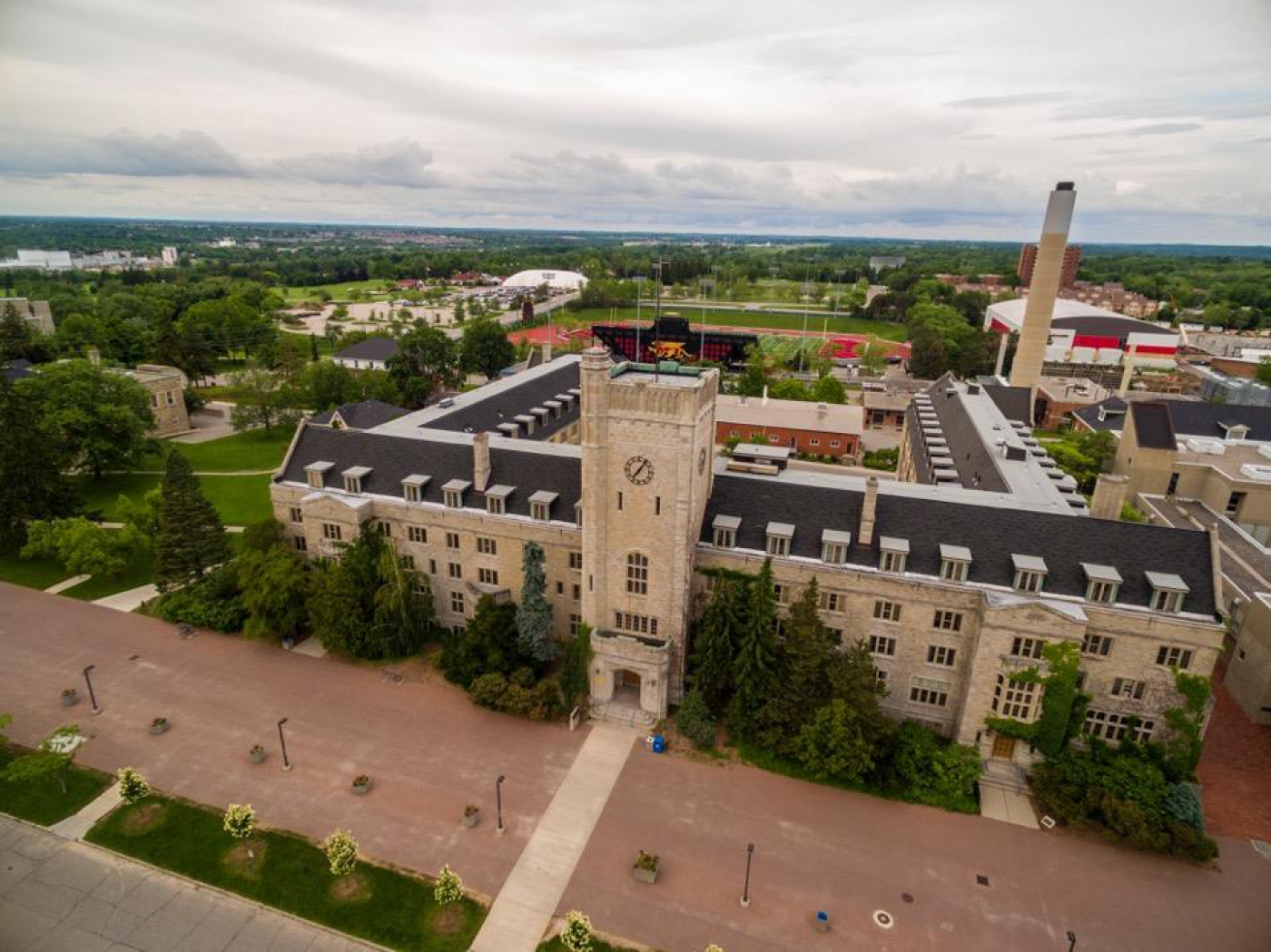
Home > Study in Canada > University of Guelph > Bachelor of Indigenous Environmental Science and Practice (Co-op)
Bachelor of Indigenous Environmental Science and Practice (Co-op)
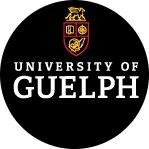 University of Guelph, Canada
University of Guelph, Canada

CAD 34698
Annual Tuition Fee

CAD 90 Waived
Application Fee

60 months
Duration

6.5
IELTS

89
TOEFL

75%
Min GPA
Program Overview
The Bachelor of Indigenous Environmental Science and Practice (BIESP) is an interdisciplinary science degree that focuses on the development of leaders in areas of environmental science, land-use and policy development who are grounded in Indigenous ways of knowing and being. This science degree emphasizes the respectful and consensual braiding of Indigenous and Western knowledge systems to address complex environmental issues and challenges. It focuses on the responsible use and protection of the natural environment through practices based on Indigenous ways of knowing and doing and the practice of Indigenous land ethics grounded in Indigenous epistemologies, ontologies, traditions and aspirations. By explicitly recognizing the inherent validity and value of Indigenous ways of knowing and doing, this interdisciplinary program offers a critical, yet constructive, view of environmental science, grounded in Indigenous knowledge systems, methodologies, priorities and values and oriented towards concrete action. In addition to their studies of natural and applied science, students will examine the historical and contemporary relationships between Indigenous and non-Indigenous peoples in Canada and the legal, political and economic context of environmental science and practice.
Experiential learning is incorporated into each year of study through opportunities to interact and work directly with Indigenous communities and organizations supporting cross-cultural learning and practice. In the final year, students will conduct a group project that focuses on a current environmental issue and provides the opportunity to obtain realistic experiences within the interdisciplinary context of practicing environmental science with Indigenous communities. The BIESP is also offered as a co-op option.
Learning Outcomes
Graduates of the BIESP degree will have demonstrated they can:
- Build awareness of Indigenous cultural frameworks of environmental science including the role of traditional knowledge keepers, right relations, multi-generational environmental stewardship, and inclusion of non-human beings.
- Consider the implications of historical and contemporary relationships between Indigenous and non-Indigenous communities in influencing governance, practices, policies, interactions and decision making in environmental science and practice.
- Apply a critical and decolonial lens to the existing approach to environmental science and practice in Canada through the exploration of Indigenous principles, aspirations and practices while cognizant of the historical and ongoing legacy of colonization, land dispossession, and intergenerational trauma.
- Apply the evolving legal frameworks of Indigenous and non-Indigenous environmental science, which include Indigenous People’s inherent, treaty and constitutionally-protected rights, historic and contemporary lands, the minimal standard of free, prior, and informed consent, duty to consult and Indigenous-led practices of protection and restoration of special places and community well-being, to environmental stewardship.
- Bridge and braid Indigenous and Western knowledge systems to propose and evaluate answers and solutions to environmental questions.
- Formulate relevant and testable research questions, develop and implement an effective method of inquiry and perform appropriate quantitative and qualitative analyses for use in evidence-based environmental planning, policy development and implementation across different knowledge systems from Indigenous and Western research paradigms and methodologies.
- Utilize techniques and skills including mapping and GIS, data classification, spatial analysis, map design, Indigenous research methodologies and environmental risk assessment practices to analyze environmental management issues across different knowledge systems.
- Demonstrate project management skills (leadership, negotiation, communication, problem-solving, decision-making, time and task management, and budgeting) to effectively work within a team to complete multifaceted projects related to environmental management, research, and community engagement.
- Communicate ideas, arguments and analyses to Indigenous and non-Indigenous audiences accurately and effectively, recognizing the role of language, personal values, strengths and limitations, and respecting diverse perspectives.
- Demonstrate moral maturity and intercultural competency by considering diverse perspectives on environmental issues and Indigenous world views when acting as a professional and community member in decision making processes related to topics of land use, conservation, sustainability and environmental remediation and restoration.
- Critically reflect on their personal values, academic and professional goals and determine how they can continue to respectfully engage and sustain relationships with Indigenous and non-Indigenous communities to address environmental challenges utilizing both Indigenous and Western scientific knowledge systems and ethical protocols.
- Appreciate and support the needs and priorities of Indigenous communities to promote respect, protect and sustain Indigenous knowledge and practice in Indigenous communities.
Co-op
The Co-op program in Indigenous Environmental Science and Practice is a five-year program including four work terms. Students must follow the academic work schedule as outlined below (also found on the Co-operative Education website: https://www.recruitguelph.ca/cecs/).
Indigenous Environmental Science and Practice Academic and Co-op Work Term Schedule
| Year | Fall | Winter | Summer |
| 1 | Academic Semester 1 | Academic Semester 2 | Off |
| 2 | Academic Semester 3, COOP*1100 | Academic Semester 4 | COOP*1000 Work Term I |
| 3 | Academic Semester 5 | Academic Semester 6 | COOP*2000 Work Term II |
| 4 | OOP*3000 Work Term III | OP*4000 Work Term IV | Off |
| 5 | Academic Semester 7 | Academic Semester 8 | N/A |
Additional Information
Program Level Bachelor's Degree
College/University Processing Time 10 Days
Program Format Full-Time
Post-Graduation Work Permit (PGWP) 
General Admission Requirement
- IELTS
- Minimum Overall Score - 6.5 - With No Band Less Than - 6
- TOEFL
- Minimum Overall Score - 89 - With no score less than - 21
- PTE
- Minimum Overall Score - 60.0 Minimum Listening - 60.0 Minimum Reading - 60.0 Minimum Writing - 60.0 Minimum Speaking - 60.0
- DUOLINGO
- Minimum Overall Score - 110.0
Academic Requirement
- Minimum Level of Education Required: To be accepted into this program, applicants must have Grade 12 / High School Diploma or equivalent including the following required course(s):
- English
- Advanced math
- Biology
- Chemistry
- 2 additional courses
Note: Advanced Math is one of Pre-Calculus, Functions, (I) GCSE, CSEC, IB Math (only SL/HL Analysis & Approaches, HL Applications & Interpretations), or other equivalent Math containing Advanced Functions, Algebra, Geometry, or Trigonometry, approved by Admission Services.
Similar Programs


British Columbia Institute of Technology - Burnaby Campus
Intake
Sep 2025

Application Fee

Duration
Test Score
6.5
IELTS
86
TOEFL
65
Min GPA


British Columbia Institute of Technology - Burnaby Campus
Intake
Sep 2025

Application Fee

Duration
Test Score
6.5
IELTS
86
TOEFL
65
Min GPA


British Columbia Institute of Technology - Burnaby Campus
Intake Jan 2026
Sep 2025

Application Fee

Duration
Test Score
6.5
IELTS
86
TOEFL
65
Min GPA


British Columbia Institute of Technology - Burnaby Campus
Intake
Jan 2026, Sep 2025

Application Fee

Duration
Test Score
6.5
IELTS
86
TOEFL
70
Min GPA


British Columbia Institute of Technology - Burnaby Campus
Intake
Sep 2025

Application Fee

Duration
Test Score
6.5
IELTS
86
TOEFL
65
Min GPA


British Columbia Institute of Technology - Burnaby Campus
Intake
Sep 2025

Application Fee

Duration
Test Score
7
IELTS
90
TOEFL
67
Min GPA


British Columbia Institute of Technology - Burnaby Campus
Intake
Sep 2025

Application Fee

Duration
Test Score
6.5
IELTS
86
TOEFL
65
Min GPA


British Columbia Institute of Technology - Burnaby Campus
Intake
Sep 2025

Application Fee

Duration
Test Score
6.5
IELTS
86
TOEFL
60
Min GPA


British Columbia Institute of Technology - Burnaby Campus
Intake
Sep 2025

Application Fee

Duration
Test Score
6.5
IELTS
86
TOEFL
60
Min GPA


British Columbia Institute of Technology - Burnaby Campus
Intake
Sep 2025

Application Fee

Duration
Test Score
6.5
IELTS
86
TOEFL
65
Min GPA


British Columbia Institute of Technology - Burnaby Campus
Intake
Sep 2025

Application Fee

Duration
Test Score
6.5
IELTS
86
TOEFL
65
Min GPA
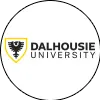

Dalhousie University
Intake
Sep 2025

Application Fee

Duration
Test Score
6.5
IELTS
90
TOEFL
70
Min GPA


Dalhousie University
Intake Jan 2026
Sep 2025

Application Fee

Duration
Test Score
6.5
IELTS
90
TOEFL
70
Min GPA


Dalhousie University
Intake Jan 2026
Sep 2025

Application Fee

Duration
Test Score
6.5
IELTS
90
TOEFL
70
Min GPA


Dalhousie University
Intake
Sep 2025

Application Fee

Duration
Test Score
6.5
IELTS
90
TOEFL
70
Min GPA


Dalhousie University
Intake Jan 2026
Sep 2025

Application Fee

Duration
Test Score
6.5
IELTS
90
TOEFL
70
Min GPA
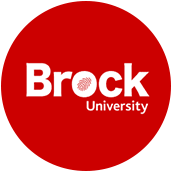

Brock University
Intake
Sep 2025

Application Fee

Duration
Test Score
6.5
IELTS
88
TOEFL
75
Min GPA


Brock University
Intake
Sep 2025

Application Fee

Duration
Test Score
6.5
IELTS
88
TOEFL
70
Min GPA


Brock University
Intake
Sep 2025

Application Fee

Duration
Test Score
6.5
IELTS
88
TOEFL
70
Min GPA


Dalhousie University
Intake Jan 2026
Sep 2025

Application Fee

Duration
Test Score
6.5
IELTS
90
TOEFL
70
Min GPA
Tuition Fee
The values given below are estimated figures, excluding extra charges like material fee, student activity fees, athletic fees, health care, etc., for courses. To know more, please visit the Programs page.
Average Tuition Fee Per Year
34698
Tuition Fee
(CAD)
CAD 90 Waived
Application Fee
(CAD)
11000 Per year
Average Cost of Living
(CAD)
The living costs include the total expenses per month, covering accommodation, public transportation, utilities (electricity, internet), books and groceries.
Check program website for more information about funding options.
Scholarships
International Entrance Scholarships: $18,500 - $21,500 CAD
International students entering post-secondary studies for the first time and registering in the first semester of a degree program in the fall semester.
| Admission Average | Current Value for Fall 2024 (year 1) | Annual Renewal Amount (years 2, 3 and 4) | Overall 4 Year total |
| 95.0% and greater | $9,500 | $4,000 | $21,500 |
| 90.0% - 94.9% | $8,500 | $4,000 | $20,500 |
| 85.0% - 89.9% | $7,500 | $4,000 | $19,500 |
| 80.0% - 84.9% | $6,500 | $4,000 | $18,500 |
| Eligibility | Students' Responsibilities | Conditions | Renewal criteria |
|
Will be based on the admission offer average calculated by the University of Guelph’s Admission Services. U of G will determine averages for applicants who are not studying in a Canadian secondary school curriculum based on curriculum, grading practices and grading scale interpretation. Students admitted in fall 2020, Fall 2021, Fall 2022, Fall 2023 or Fall 2024 and receiving an entrance scholarship are eligible to receive a $4,000 award in years 2, 3 and 4 if all renewal criteria (see below) are met each year. |
Submit an application for admission. Ensure that my admission application is complete and all documents are received as requested by Admission Services, University of Guelph. |
Recipients must register for both the fall and winter semesters in year 1. Recipients must pay the International student tuition and fees. |
Recipients must remain registered in full-time studies and achieve a minimum 80.0% average in their previous academic year of full-time study (typically fall/winter). Recipients must continue to pay the International student tuition and fees. |
Students who fail to qualify for a continuing payment may re-qualify by subsequently obtaining an 80.0% or better average in the previous academic year of full-time study. Payments lost cannot be added to the end of the award period.
NOTE: Entrance scholarships cannot be deferred. Students who defer their offer of admission are reconsidered the following year based on the availability of scholarship for that cohort.
Dr. Franco J. Vaccarino President's Scholarship:
The University of Guelph's most prestigious undergraduate entrance award for international students. It was established in honour of the University’s eighth president, Dr. Franco Vaccarino, to acknowledge his remarkable impact on the University.
One scholarship is awarded each year to the top international student. It is valued at $42,500 and includes a research assistantship position and mentorship by one of the University's leading professors.
You are eligible to apply if you:
- Have submitted an application for admission and have a valid U of G student ID number;
- Are an International (VISA) student;
- Are entering the first semester of any undergraduate degree program at the University of Guelph;
- Have not previously attended a post-secondary institution;
- Have at least an admission average equivalent to a 90.0% Canadian curriculum; and
- Have made significant leadership contributions to your school and community.
- Canadian citizens and permanent residents of Canada are not eligible for this scholarship regardless of current country of residence or international school credentials. Please apply for a President's Scholarship or Lincoln Alexander Chancellor'sScholarship.
- Application now closed for 2024
- Student Application Deadline: January 25, 2024 4:00:00 p.m. (EST)
- Reference Letters Deadline: February 1, 2024 4:00:00 p.m. (EST)
International Transfer Scholarship
Transfer students are valued members of the U of G community. To support our students, we have established a new $10,000 scholarship for international fee-paying transfer students joining the University of Guelph in the summer 2024 or fall 2024 semesters.
Scholarship Details
International fee-paying transfer students admitted to an undergraduate degree program for summer 2024 or fall 2024 are eligible to receive a one-time $10,000 CAD scholarship.
The award will be paid in two equal instalments, one in each of the first two semesters of study, and will be deposited directly to your University of Guelph account.
Conditions
Recipients must register for courses in the semester to which they were admitted, as well as the subsequent semester.
Recipients must pay the international student tuition and fees.
Changing immigration status may impact your eligibility.
Notes
Applicants to the Doctor of Veterinary Medicine program are not eligible for this award.
Entrance scholarships cannot be deferred. Students who defer their offer of admission are reconsidered the following year based on the availability of scholarships for that cohort.
Not sure what you are looking for?
Don’t worry, we are here to help.
Popular Universities to Study Abroad
World class education waiting for you.
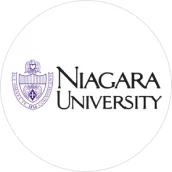
Ontario, Canada • 10 Programmes
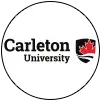
-modified-(1).webp)

Ontario, Canada • 18 Programmes

Ontario, Canada • 3 Programmes
Top Places To Study In Canada
Province wise Popular university and colleges for Studying abroad.
- Universities in Alberta
- Universities in British Columbia
- Universities in Manitoba
- Universities in New Brunswick
- Universities in Newfoundland and Labrador
- Universities in Nova Scotia
- Universities in Ontario
- Universities in Prince Edward island
- Universities in Quebec
- Universities in Saskatchewan
- Universities in Yukon Territory
Popular English Language Proficiency Exams
Blogs and Articles
Study in Canada Blogs & Articles
Updated on • Jan 24,2025 10:50 AM IST • Study in Canada
Canada Student Visa Interview Questions
Updated on • Jan 23,2025 12:16 PM IST • Study in Canada
Updated on • Dec 05,2024 05:04 PM IST • Study in Canada
Best Cities to Study in Canada
Updated on • Nov 21,2024 05:23 PM IST • Study in Canada
Study intakes in Canada - Fall, Winter & Summer
Updated on • Oct 03,2024 12:51 PM IST • Study in Canada
New Rules & Regulations in Canada for International Students
Updated on • Aug 31,2024 03:19 PM IST • Study in Canada
Public Transportation in Canada for International students
Updated on • Aug 29,2024 05:08 PM IST • Study in Canada
Healthcare in Canada for international students
Updated on • Aug 27,2024 05:12 PM IST • Study in Canada
LLB in Canada for Indian Students After 12th
Updated on • Jun 28,2024 05:48 PM IST • Study in Canada
Benefits of 1+1 Programs in Canada
Updated on • Jul 12,2024 04:06 PM IST • Study in Canada
Increase your CRS Score with 1-year Master's in Canada
Updated on • Jun 11,2024 05:53 PM IST • Study in Canada
Hotel Management Courses in Canada: Top Universities & Available Scholarships
Updated on • May 31,2024 05:57 PM IST • Courses in Canada
Management Courses in Canada: Universities, Fees, Requirements, Scholarships & Jobs
Updated on • May 28,2024 01:39 PM IST • Study in Canada
Updated on • May 24,2024 04:49 PM IST • Study in Canada
Top Universities For Computer Science Courses in Canada
Updated on • May 28,2024 11:02 AM IST • Study in Canada
Increase Your PGWP Duration with 2 Years of Study in Canada
Updated on • May 22,2024 10:58 AM IST • Study in Canada
Canada Increases Off-Campus Working Hours for International Students
Updated on • May 22,2024 05:48 PM IST • Study in Canada
Student Education Loan to Study in Canada - Eligibility, Documents Required, How to Apply
Updated on • May 18,2024 03:27 PM IST • Education Loans
Teaching Courses in Canada for Indian Students
Updated on • May 17,2024 11:26 AM IST • Study in Canada
Universities in Canada for International Students
Updated on • May 14,2024 11:49 AM IST • Study in Canada









